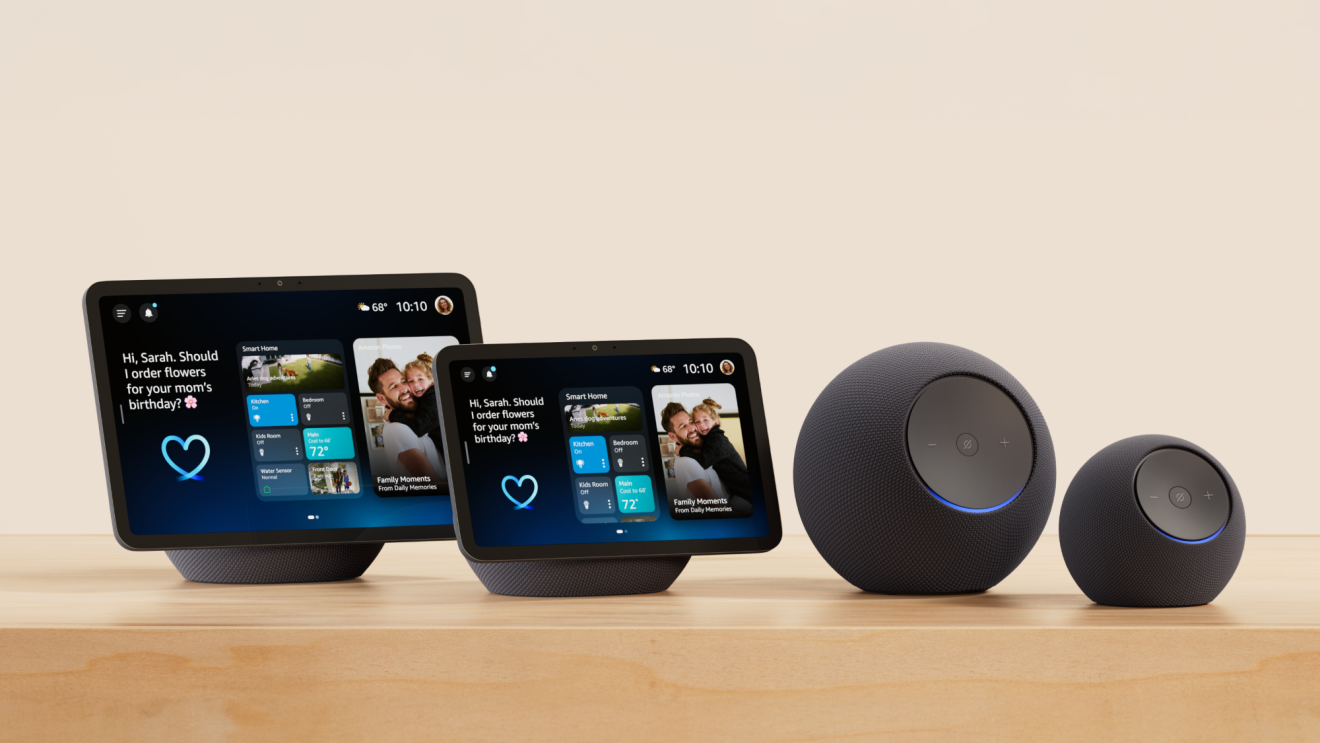A New Era in Smart Home Technology
Amazon has officially launched its next-generation AI assistant, Alexa+, accompanied by a brand-new lineup of Echo devices, signaling a major evolution in the way consumers interact with smart home technology. Unlike previous iterations, these devices are equipped with Amazon’s upgraded AZ3 Pro chips and Omnisense sensor fusion platform, which allow the AI to process voice commands faster, recognize context more effectively, and respond to complex multi-step requests almost instantly. The company emphasizes that Alexa+ is designed to learn from the user over time, adapting its responses and actions to match daily routines, preferred phrasing, and even moods inferred from speech patterns. This personalization promises to make everyday tasks like scheduling, media playback, and home automation far more seamless. Analysts note that this development is part of a larger push by Amazon to integrate AI more deeply into daily life, transforming smart home devices from simple assistants into central hubs that anticipate needs, streamline tasks, and provide a more natural and intuitive experience for every household. The launch event showcased the devices in a live demonstration. Attendees were able to test Alexa+ with multiple connected devices at once, giving a glimpse into its potential for real-world use. Amazon emphasized how the assistant can prioritize urgent tasks, handle overlapping commands, and adjust routines based on context — for example, dimming lights during evening hours while playing soft music.

What Alexa+ Brings to Users
The newly unveiled Alexa+ is a major leap forward in consumer AI. It moves beyond the limitations of scripted responses and basic command recognition, offering more intelligent, context-aware interactions that mimic human conversation. For example, if a user asks, “Set up my morning routine,” Alexa+ can coordinate multiple smart devices, adjust lighting, start coffee machines, read out the day’s weather and calendar appointments, and even suggest news updates based on the user’s interests. It can remember prior requests and preferences, making it capable of offering suggestions like playing a certain music playlist based on the day of the week or turning on specific lights when it recognizes habitual activity. Additionally, Alexa+ can integrate with third-party apps and services, expanding the range of tasks it can perform. While the cloud-based AI engine allows for more powerful computation and continuous updates, it also means the system can learn faster and adapt more dynamically to changing user behavior. Early testers have noted that Alexa+ seems to understand context more deeply than prior versions. In some cases, it can infer missing information or clarify ambiguous requests, making interactions feel more human. Users also appreciated the assistant’s ability to maintain continuity across conversations, remembering previous topics or preferences without needing repeated instructions.

Privacy Considerations and Challenges
Despite the impressive technological advancements, the release of Alexa+ has reignited long-standing debates over digital privacy. Because the AI now relies heavily on cloud-based processing, all voice commands are transmitted and stored on Amazon servers, raising questions about data security and potential misuse. Amazon has attempted to address these concerns by introducing the Alexa Privacy Dashboard, which allows users to see exactly what data is collected, delete recordings, and manage permissions for different devices. While this tool represents a significant step forward in transparency, critics argue that cloud-based AI inherently carries risks that local processing would not, such as exposure to hackers or unauthorized access. Privacy advocates have also expressed concern that the AI’s improved contextual understanding could lead to unexpected data profiling, as Alexa+ might analyze speech patterns, inflection, and background sounds to enhance its responses. Amazon maintains that these features are fully optional and that user data is encrypted, but the debate highlights the ongoing tension between creating intelligent, responsive technology and safeguarding personal privacy. Some experts warn that as AI assistants become more intuitive, users may inadvertently share personal details they didn’t intend to. Amazon has promised ongoing updates and educational materials to guide users on managing their data and adjusting settings to maintain control over privacy. Many observers note that consumer adoption will hinge on whether people feel Alexa+ is both useful and trustworthy, and that market reactions over the next several months will be crucial in determining the pace of further innovations.

The Broader AI Race & Looking Ahead
Amazon’s announcement arrives at a time when competition in the smart home sector is fiercer than ever. Google, Apple, and other tech companies are rolling out devices with increasingly sophisticated AI, from conversational assistants to smart displays and integrated home systems. Analysts suggest that Amazon’s strength lies in its ability to combine hardware, software, and cloud-based intelligence into a cohesive ecosystem, giving Alexa+ devices a clear edge in terms of versatility and integration. At the same time, this ecosystem-wide integration heightens the responsibility on Amazon to handle data securely, maintain user trust, and demonstrate ethical AI usage. Industry experts highlight that the race is not only about who can build the smartest AI but also who can convince users that their devices are safe, reliable, and respectful of privacy, signaling that technological innovation and trust-building must go hand in hand. As Alexa+ begins shipping to consumers, it will serve as both a test of Amazon’s technological prowess and a case study in balancing innovation with privacy. The rollout is expected to offer valuable insights into how users interact with AI in their daily lives, including patterns of engagement, preferences, and potential areas of concern. By integrating generative AI, real-time learning, and advanced personalization, Amazon is attempting to create devices that feel like intelligent companions rather than mere tools. However, this leap forward also comes with challenges, including ensuring security, preventing misuse of data, and maintaining transparency around how information is collected and processed. Observers predict that Alexa+ and the new Echo devices will significantly influence the trajectory of the smart home industry, shaping expectations for AI assistants and home automation for years to come.

